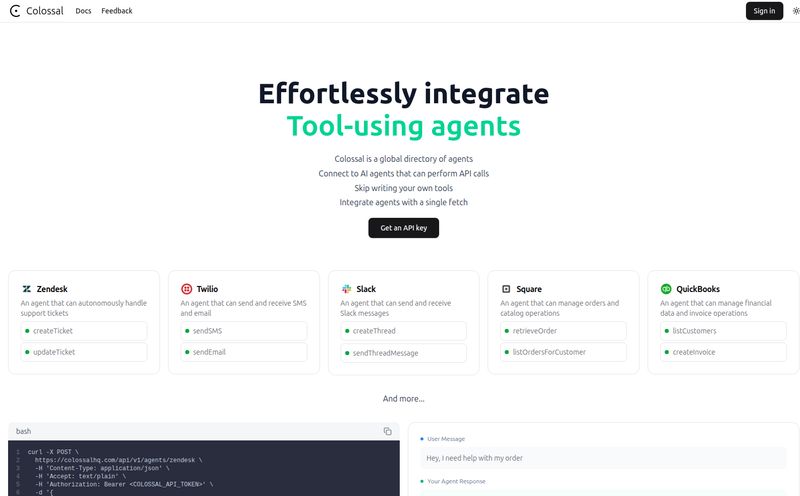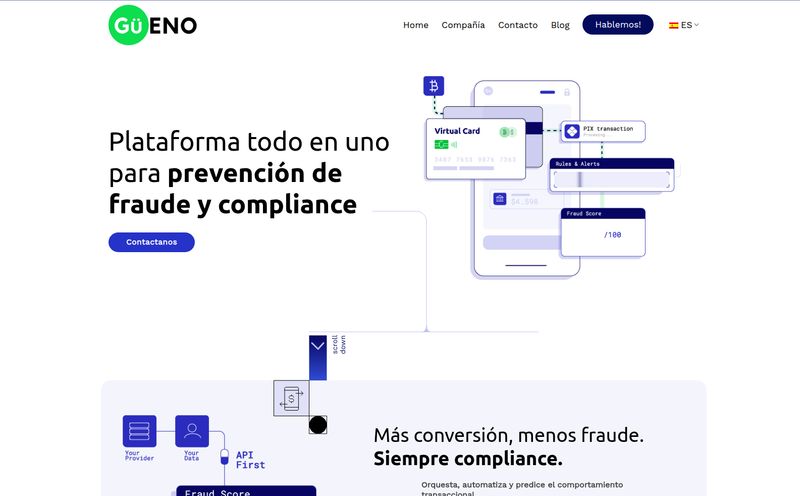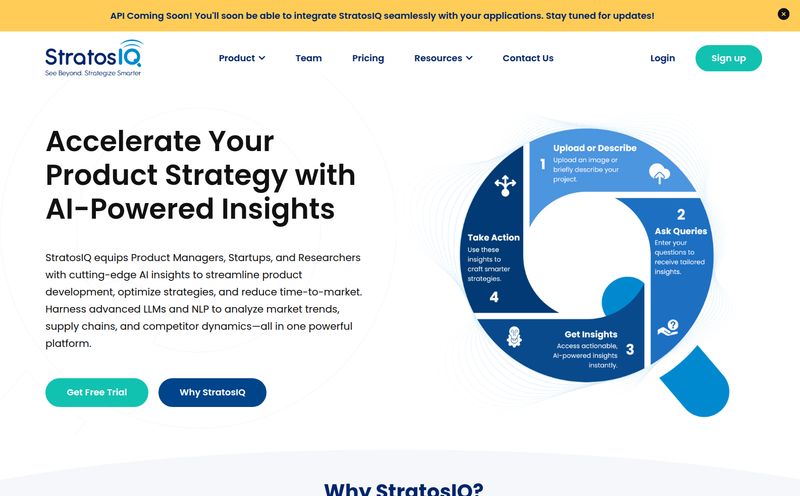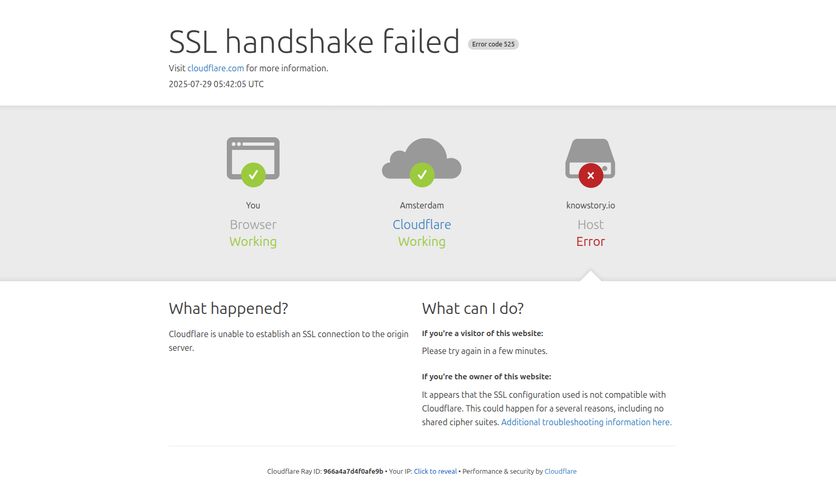If you’re a blogger, a marketer, or anyone who creates content for the web, you’ve been there. You're deep in the zone, crafting the perfect article, and then you hit the wall. The content needs a visual. A hero image. Something to break up the text.
And so begins the Great Stock Photo Hunt. An hour of your life you'll never get back, lost in a dozen browser tabs. You're bouncing between Shutterstock, Adobe Stock, Getty, then hopping over to Unsplash and Pexels, praying for a decent free option. Your eyes glaze over. All the photos start to look the same. You find one you love on a premium site, and the price makes your wallet weep. It's a frustrating, time-sucking vortex that I know all too well.
For years, I just accepted this as part of the job. A necessary evil. But recently, I stumbled upon a tool that genuinely changed my workflow. It's called Everypixel, and after putting it through its paces, I've gotta say, I'm a convert. It’s not perfect, but it’s a massive step in the right direction.
Visit Everypixel
So, What is Everypixel, Exactly?
Think of it like this: Everypixel is a seasoned librarian for the chaotic, sprawling library of the internet's stock photos. Instead of you running to every single section of the library (Shutterstock, Depositphotos, Pexels), you just walk up to the main desk, tell the librarian what you need, and they bring you all the relevant books from every corner of the building. And not only that, they tell you which ones are free and which ones you have to pay for, listing the prices side-by-side.
In slightly more technical terms, Everypixel is an AI-powered stock image search engine. It aggregates results from over 50 different free and paid stock photo sources into one clean interface. The goal is simple: help you find the best possible image, for the best possible price (or for free), in the least amount of time. It's a simple premise, but the execution is pretty slick.
The Features That Actually Matter to a Blogger
A tool can have a million features, but only a few usually make a real difference in your day-to-day. Here’s what stood out to me while using Everypixel.
The All-Seeing AI Eye
This is probably the coolest part. Everypixel has a reverse image search function. Have you ever seen a photo on a competitor's site and wondered where they got it? Or maybe you have a low-res version of an image and need to find the high-quality original to license it? You can just upload the image or paste a URL, and the AI will scan its massive index to find it for you. It's fantastic for sourcing images and even finding visually similar alternatives you might like even better.
One Search Bar to Rule Them All
This is the core time-saver. Searching 50+ agencies at once is a game-changer. My old process involved at least five open tabs. Now, it's just one. The search filters are also surprisingly robust. You can filter by:
- Source: Want to see only free images? Just tick the box. Only want to see results from your favorite premium provider? You can do that too.
- Orientation: Horizontal, vertical, or square. A simple but essential filter for finding blog banners vs. social media posts.
- Color: This is more useful than you'd think. You can pick a primary color to find images that perfectly match your brand's aesthetic. No more clashing visuals.
- Image Type: You can specify if you're looking for a photo, a vector graphic, or an illustration.
Price Shopping Without the Legwork
This is the feature that speaks directly to my budget-conscious soul. Some stock photos are sold on multiple platforms at different prices or under different subscription models. Everypixel shows you this. You might find an image you want on Getty for a premium price, but Everypixel could show you the same image available on Adobe Stock as part of your existing subscription. This alone can save you a surprising amount of cash over time. It takes the guesswork out of getting the best deal.
My Honest Take: The Good and The Not-So-Good
No tool is a silver bullet, right? While I'm pretty high on Everypixel, it’s important to look at both sides. It’s not a magical solution, but rather a very, very smart aggregator.
On the one hand, the advantages are clear. It saves an incredible amount of time, it can directly save you money, and the advanced search options are a godsend for finding that just right image. And the best part? The search engine itself is completely free to use. That's a huge plus. It’s a no-brainer to at least try.
However, it does have its limitations. Everypixel is only as good as the sources it indexes. If a stock photo site has a lot of cheesy or low-quality images, well, those are going to show up in your search results. It’s a classic case of “garbage in, garbage out.” You still need a good eye to pick the winners. Also, the AI, while impressive, isn't infallible. I’ve had it return some slightly odd or irrelevant results in the “visually similar” search. But honestly, it’s still more hit than miss.
How to Squeeze Every Last Drop of Value from Everypixel
Want to get started? Here are a few tips from my own experience:
- Start with the Free Filter: If you're on a tight budget, the very first thing you should do is filter for free sources only. This instantly narrows your results to sites like Pexels and Unsplash and prevents you from falling in love with an image that's out of your price range.
- Use the Color Picker for Branding: Got a specific brand color palette? Use the color filter to find images that seamlessly blend with your website's design. It creates a much more professional look than just grabbing random, mismatched photos.
- Don't Forget Author Search: If you find an artist or photographer whose style you absolutely love, you can search for their name to see all their other work across different platforms. This is a great way to build a consistent visual theme for your content.
- Double-Check the License: This is a big one. Everypixel is a search engine; it doesn't grant you the license. When you find an image you want to use, you'll click through to the original stock site. Always double-check the licensing terms on that site before you download and use the image. Is it free for commercial use? Does it require attribution? Don't get caught in a legal bind!
So, Is Everypixel Actually Free?
Yes, and no. This is an important distinction. Using the Everypixel search engine—all its filters, its AI, its comparison tools—is 100% free. You don't pay them a dime to search.
Where money comes in is when you decide to purchase a premium stock photo. When you click on a paid image, Everypixel directs you to the source website (like Adobe Stock or Shutterstock), and you complete the purchase there, according to their pricing. Everypixel doesn’t add a markup; they likely make a small commission as an affiliate, which is how they keep the service free for us. It’s a win-win.
Frequently Asked Questions
- Is Everypixel really free to use?
- Yes, the search and comparison tool itself is completely free. You only pay if you decide to purchase a premium image from one of the source websites it links to.
- Do I buy and download images directly from Everypixel?
- No. Everypixel is a search aggregator. When you find an image you like, you click a link that takes you to the original stock photo site (e.g., Shutterstock, Pexels, etc.) to download or purchase it there.
- Is the AI reverse image search better than Google's?
- For this specific purpose, I'd say yes. Google's reverse image search is for the entire web. Everypixel's is focused specifically on its indexed database of licensable stock imagery, which often yields more relevant results for finding the original source of a stock photo.
- What about image licensing?
- Crucially, you must check the license on the final source website before using any image. Everypixel helps you find them, but the license agreement (e.g., free for commercial use, editorial only, attribution required) is determined by the site that hosts the image.
- Can I find more than just photos?
- Yes! The filters allow you to search specifically for vector graphics and illustrations in addition to photos, which is great for finding icons, infographics elements, and other design assets.
- Does it search EVERY stock photo site?
- It searches over 50 of the biggest and most popular ones, covering millions upon millions of images. While it might not have every single obscure microstock site, it covers more than enough ground to be incredibly useful.
The Final Word
Look, the constant demand for high-quality visuals isn't going away. In a world saturated with content, a good image can make the difference between a click and a scroll-past. Tools that streamline the process of finding those images aren't just a convenience; they're a competitive advantage.
Everypixel has earned a permanent spot in my content creation toolkit. It takes one of teh most tedious parts of my job and makes it faster, smarter, and more cost-effective. It's not magic, but it's the closest thing I've found to it for stock photo sourcing. If you're tired of the endless tab-hopping and want to reclaim some of your valuable time, I'd say giving it a spin is a no-brainer.
Reference and Sources
- Everypixel Official Website
- Shutterstock
- Adobe Stock
- Why Visual Content Marketing is the Future by Neil Patel



